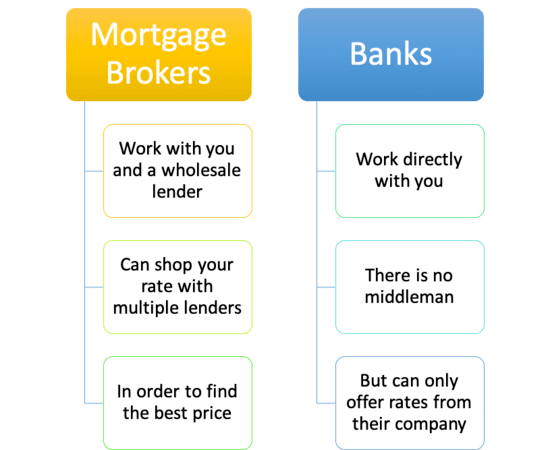Jumbo Loan Fees: What You Need to Know Prior To Using
Jumbo Loan Fees: What You Need to Know Prior To Using
Blog Article
Comprehending What a Jumbo Finance Entails and Just How It Differs From Conventional Finances
Navigating the details of big lendings reveals a financing choice customized for those venturing right into high-value actual estate, usually going beyond the restrictions set by the Federal Real Estate Financing Company. The considerable danger linked with jumbo car loans demands extra rigid certification requirements, including higher credit report scores and significant down settlements.
Interpretation of Jumbo Car Loans
Jumbo car loans are a type of home loan that go beyond the adhering lending limits set by the Federal Real Estate Financing Firm (FHFA) These financings provide to customers that need to finance residential properties that are extra costly than what traditional lending restrictions permit. The FHFA develops annual conforming lending limitations, and any type of car loan going beyond these thresholds is classified as a jumbo financing.
Usually, big financings are made use of in high-cost real estate markets where home rates substantially exceed national averages, such as in municipal locations or deluxe real estate fields. As these car loans are not eligible for purchase by Fannie Mae or Freddie Mac, they lug inherent dangers for loan providers as a result of their larger size and non-conformity (jumbo loan). Subsequently, loan providers typically impose a lot more rigorous certification requirements for big financings than standard adhering finances.
Borrowers seeking big fundings should usually demonstrate a solid financial account, consisting of a greater credit rating rating, robust income confirmation, and considerable deposit, frequently 20% or even more. Furthermore, lenders might need a lot more considerable documents to evaluate the customer's capacity to manage bigger regular monthly repayments. Recognizing the particular features of big finances is essential for prospective consumers browsing this sector of the mortgage market.
Standard Fundings Introduction
While big loans deal with high-value home funding, standard loans represent the more common mortgage alternative in the housing market. These lendings are not guaranteed or assured by any kind of government entity, such as the Federal Housing Administration (FHA) or the Department of Veterans Affairs (VA) Rather, they are backed by private lending institutions and comply with standards established by government-sponsored ventures (GSEs) like Fannie Mae and Freddie Mac.
Conventional car loans are commonly offered with repaired or adjustable rates of interest and vary in terms of period, commonly extending 15 to three decades. Customers typically like standard finances for their predictable regular monthly payments, which can facilitate long-lasting financial preparation. In addition, they are readily available for primary homes, 2nd homes, and financial investment residential or commercial properties, using adaptability to meet varied debtor demands.

Key Distinctions Between Car Loans
Recognizing the nuances between different kinds of financings is essential for potential property buyers browsing the intricate home mortgage landscape. At the forefront of this decision-making process are standard loans and jumbo lendings, each possessing unique qualities you can try these out and serving different customer requirements. The main difference rests in the loan quantity. Big loans exceed the conforming car loan limitations established by the Federal Real Estate Money Company (FHFA), which differ by region. On the other hand, traditional car loans follow these limits and are usually purchased by government-sponsored entities like Fannie Mae and Freddie Mac.

In addition, the deposit requirements can differ substantially. Jumbo fundings normally call for bigger down settlements, occasionally going beyond 20%, to mitigate risk. Conventional lendings, on the other hand, may permit lower deposits, with some programs accepting as little as 3% for competent buyers.
Qualification Requirements
Securing a jumbo finance includes satisfying extra rigid credentials demands contrasted to standard loans, reflecting the increased risk to loan providers. These financings, which go beyond the adjusting loan restrictions established by the Federal Housing Finance Firm (FHFA), are not qualified for purchase by Freddie Mac or Fannie Mae, therefore revealing loan providers to greater economic danger - jumbo loan. As a result, borrowers have to demonstrate a high creditworthiness and economic stability
A robust credit history, commonly 700 or greater, is important for approval. Lenders additionally expect a reduced debt-to-income (DTI) proportion, commonly not exceeding 43%, making certain that debtors can handle significant month-to-month repayments alongside various other financial commitments. A substantial cash book is usually required, frequently amounting to 6 months of mortgage repayments, to comfort lenders of the debtor's economic resilience.
Down payment expectations are also elevated, frequently starting at 20% or more of the residential property's worth. While this is a guard for lending institutions, it demands substantial ahead of time resources from consumers.
Picking the Right Loan
Browsing the intricacy of jumbo financings calls for cautious consideration when choosing one of the most ideal finance option. With the more comprehensive variety of options offered to those looking for jumbo fundings, the decision-making procedure ought to include an extensive analysis of one's monetary account and lasting goals. Unlike traditional lendings, big lendings usually come with more stringent needs and varied rate of interest, which demand detailed research study and a clear understanding of look at this site one's economic standing.
When choosing between different big finance offerings, it is vital to examine the funding terms, including rates of interest, settlement routines, and linked costs. Customers need to compare the prices provided by various lenders to ensure they safeguard the most desirable terms. Additionally, comprehending the implications of repaired versus variable-rate mortgages (ARMs) is important, as each alternative presents unique advantages and risks depending upon market problems and individual financial methods.
Involving with a financial consultant or home mortgage broker can offer useful understandings tailored to private conditions. These professionals can help in browsing the subtleties of jumbo loans, making certain that borrowers are well-informed and equipped to pick a loan that lines up with their financial purposes, eventually promoting a this link smoother home-buying process.
Verdict
In summary, jumbo finances act as a monetary tool for getting high-value properties, demanding strict qualification needs and higher rate of interest due to the raised danger for lending institutions. Unlike traditional car loans, which adapt FHFA limits and might receive support from Fannie Mae or Freddie Mac, big lendings need a minimum credit history of 700 and substantial down repayments. Comprehending these differences is important for customers in high-cost real estate markets to identify the most ideal finance option for their requirements.
The FHFA establishes yearly adapting lending limits, and any type of car loan exceeding these thresholds is classified as a jumbo lending.
At the forefront of this decision-making procedure are jumbo lendings and conventional finances, each possessing unique characteristics and offering different debtor needs.Safeguarding a jumbo loan includes satisfying a lot more stringent credentials requirements contrasted to conventional finances, reflecting the boosted risk to loan providers. Unlike conventional fundings, big car loans often come with stricter needs and varied rate of interest prices, which necessitate complete study and a clear understanding of one's financial standing.
Unlike traditional loans, which adapt to FHFA restrictions and may get support from Fannie Mae or Freddie Mac, jumbo finances require a minimum debt score of 700 and considerable down settlements.
Report this page